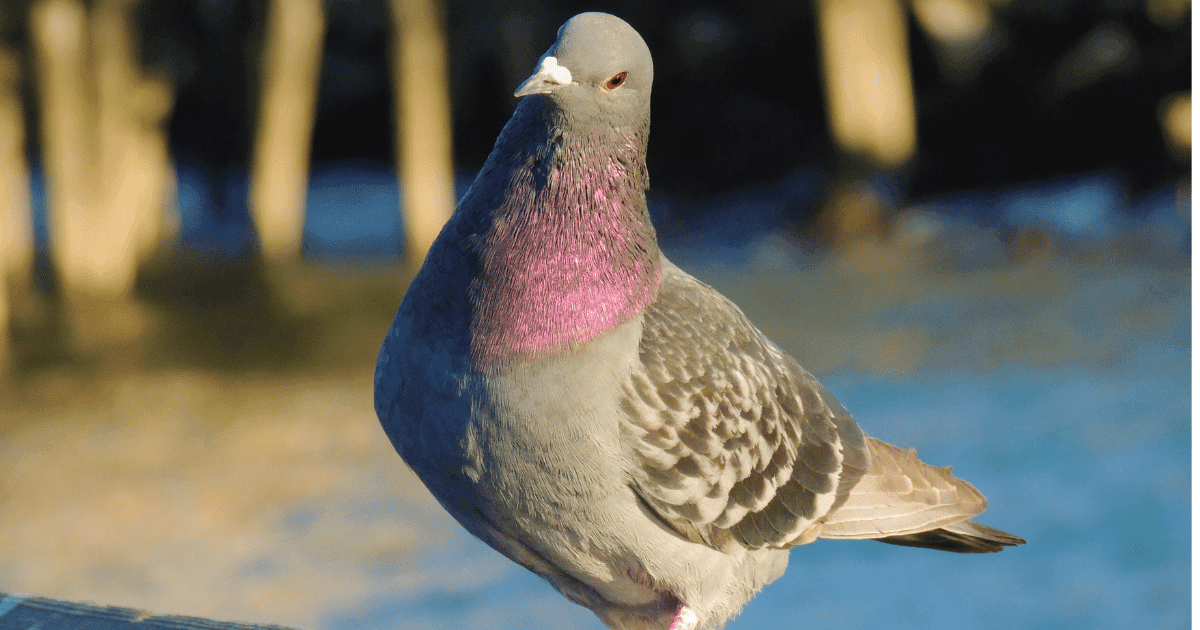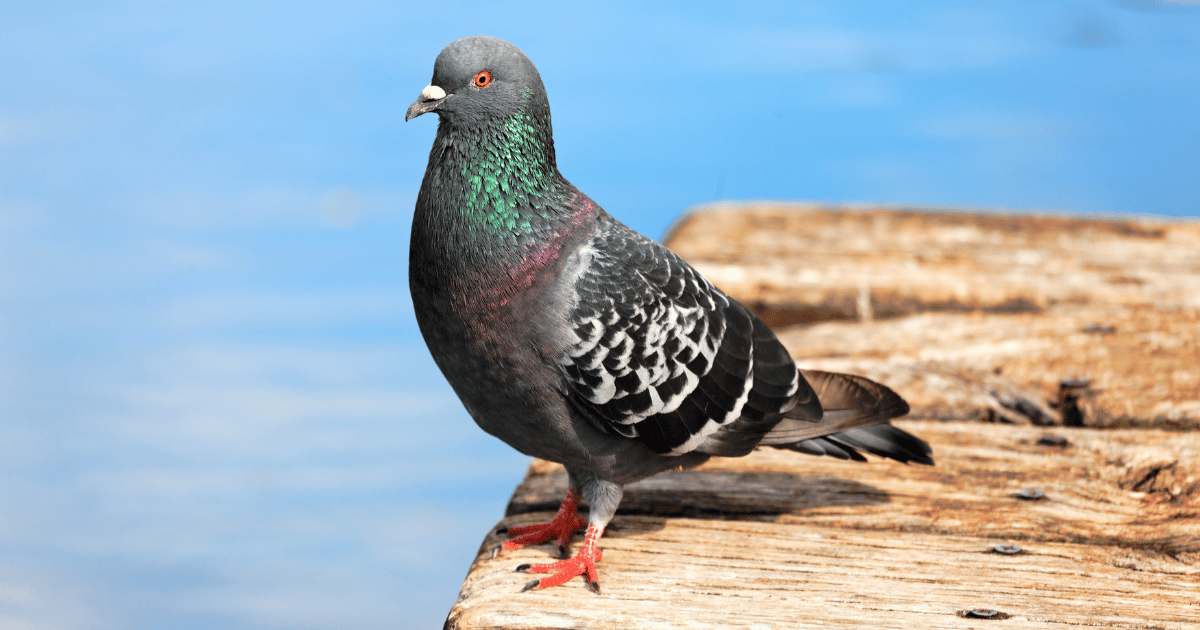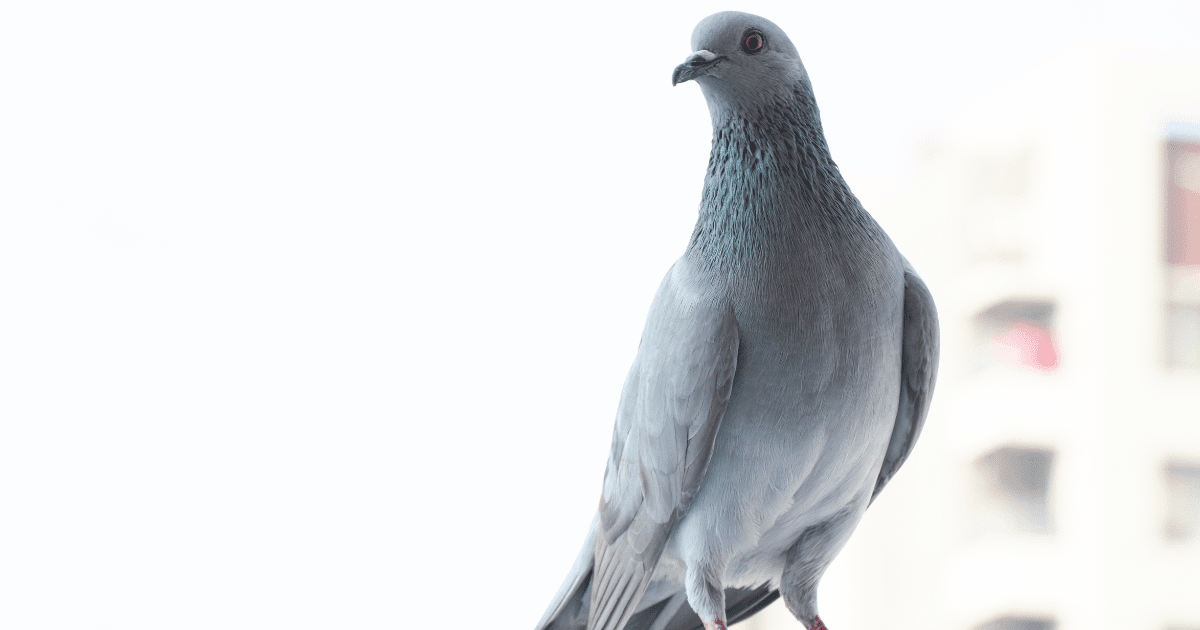Ever explored the question, do pigeons carry diseases? Join us as we explore the cooing comrades’ environment to discover the truth! With a smile, science!
Introduction:
Ah, pigeons, the scavengers of crumbs and unwelcome visitors to the park. These city slickers may be seen everywhere with their dazzling plumage and carefree strutting. But among the cooing and head-bobbling, the query do pigeons carry diseases? frequently flutters about. Please fasten your seatbelt as we set out on a feathery journey to learn the truth about the health records of our avian friends while also having a good time.
Are Pigeons Disease Carriers? It’s Not Just “Coo” and Games, Spoiler!

Let’s hatch the facts before we write off our feathered friends as mere supporting players in the epic play of city life. Indeed, pigeons can carry infections, just like small backpackers. These fall into several categories, from “Oh, that’s annoying” to “Wait, what?!” They could unintentionally bring the following items to our picnics:
Psittacosis, or “The Not-So-Lovey-Dovey Disease,” is a disease.
Psittacosis is a bacterial illness called “parrot fever” (pigeons can’t escape the bird clichés). It can be transmitted to people by breathing dry bird excretion particles; gross, right? The flu-like symptoms, including fever, chills, and headache, are present. But do not worry; a round of antibiotics will return you to the game!
The Uninvited Fungal Fiasco, Cryptococcosis:
Pigeons become more ominous at this point. They may include the fungus Cryptococcus neoformans, which enjoys residence in bird droppings. It can result in cryptococcosis in people, a condition that makes your body play a nasty game of hide and seek. Although it’s uncommon, prevention is better than therapy!
The Bird-Dropping Cloud’s Silver Lining
Remember this before you start giving every pigeon the side-eye like they’re planning to take over the world: there is little possibility that you may contract a disease from these birds. Plus, they have a history of conveying messages, saving lives during battle, and possessing homing abilities that outperform your smartphone’s GPS—on a sunny day.
The Inconspicuous Flying Companions of the Urban Jungle
Pigeons are as much a part of a city’s landscape as its tall skyscrapers and busy streets, even though they are frequently derided as the bohemian freeloaders of the town. These birds have a terrible reputation thanks to their iridescent feathers and the never-ending search for your sandwich crumbs. They adorn park benches, populate public spaces, and occasionally put on free performances with their flight acrobatics. But this brings us back to the persistent query: do pigeons carry diseases? They have committed more crimes than just jaywalking. Let’s explore this avian mystery more!
The Sneaky Spore Saga: Histoplasmosis:
Our pigeon story now has a new plot twist: Histoplasmosis. Inspire the Histoplasma capsulatum fungus spores, which prefers to grow on soil where bird droppings have improved, resulting in this respiratory ailment. The signs and symptoms frequently resemble a cold, but it can become severe for people with low immune systems. We suggest? Avoid regions with many bird droppings to avoid becoming a histoplasmosis statistic!
An Honorable Mention for the Avian Flu:
Although our pigeon friends aren’t frequently associated with the notorious Avian Influenza (bird flu), they can get it. Before you go pigeon-proofing every aspect of your life, remember that human cases of the bird flu caused by pigeons are much more uncommon than discovering a four-leaf clover on a leap day. In this situation, you should use greater caution with poultry.
Managing Our Feathered Neighbors (Pigeon Patrol)

We now know that pigeons can carry viruses, but it’s crucial to remember that the threat they pose to the typical human is minimal—this isn’t a pigeon exposé, after all! But for health and harmony, a balance is essential for all wildlife.
A Crumby Situation Due To The Population Boom:
Pigeons are prolific breeders; if you offer them plenty of food, they’ll repeatedly use it as a signal to create a family. Overpopulation can result from human generosity with food, and as more pigeons mean more droppings, the risk of health problems increases. The answer? Utilize food scraps sparingly. I assure you that pigeons will only go hungry with your breadcrumbs!
Space Sharing and Architectural Pigeon-Proofing:
Since they don’t have any immediate plans to move, controlling places to make them less pigeon-attractive is a positive step. Consider netting, anti-roosting spikes, or a plastic owl with a daring style. Coexistence without mess or health concerns is the goal!
The Safety First Conundrum in Cleanup:
Pigeon cleanup is not a glamorous chore but a very vital one. If you’re on duty cleaning up droppings, arm yourself with gloves, a mask, and the proper disinfectants. The chance of those bothersome diseases spreading is decreased when spaces are kept poop-free.
FAQs
Can touching a pigeon get you sick?
Accidents happen, even though most people don’t put cuddling a pigeon high on their bucket lists. A casual touch won’t make you sick in most cases, but you should be looking for droppings. Additionally, washing your hands has always been a trend!
Should I cease providing food to pigeons since they are disease carriers?
There is no reason for the fun to end if you enjoy feeding pigeons! But the key is moderation. Overfeeding raises the stakes on the health risk poker table by increasing pigeon populations and droppings.
How can I safeguard myself from ailments brought on by pigeons?
Simple rule: avoid touching pigeon poop like you would lava. If you’re cleaning up their preferred “resting spots,” wear gloves and a mask. If you live in an area where pigeons are expected, keep those windows closed, and you’ll be fine!
Conclusion
So, let’s get to the essential inquiry: do pigeons carry diseases? They do, indeed. But are all pigeons doomed to feathery creatures? Without a doubt! Most of our cooing compatriots are safe, providing a touch of nature to the concrete jungle. Therefore, the next time a pigeon waddles your way, there’s no need to run; perhaps forgo the handshake instead!
Hello! I’m Javed, a versatile content writer specialized in various niches, with a particular passion for home and garden topics. My expertise extends beyond writing—I’m also skilled in SEO and WordPress development, boasting over four years of experience in these areas.
